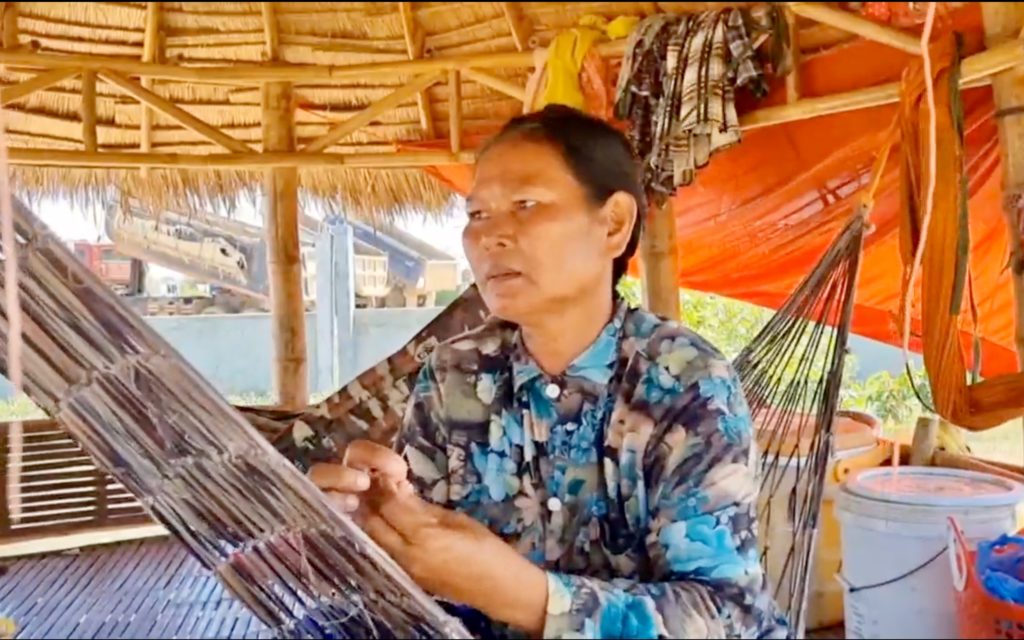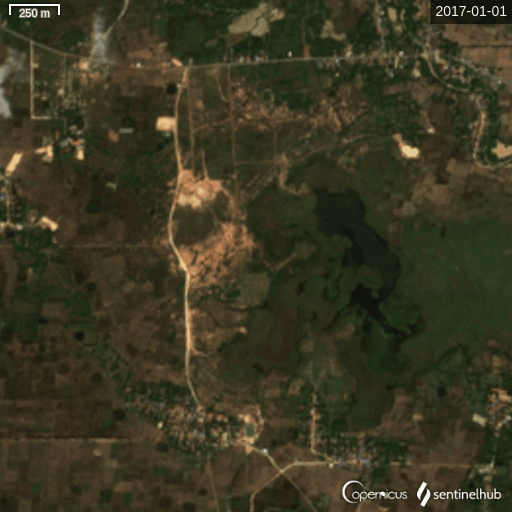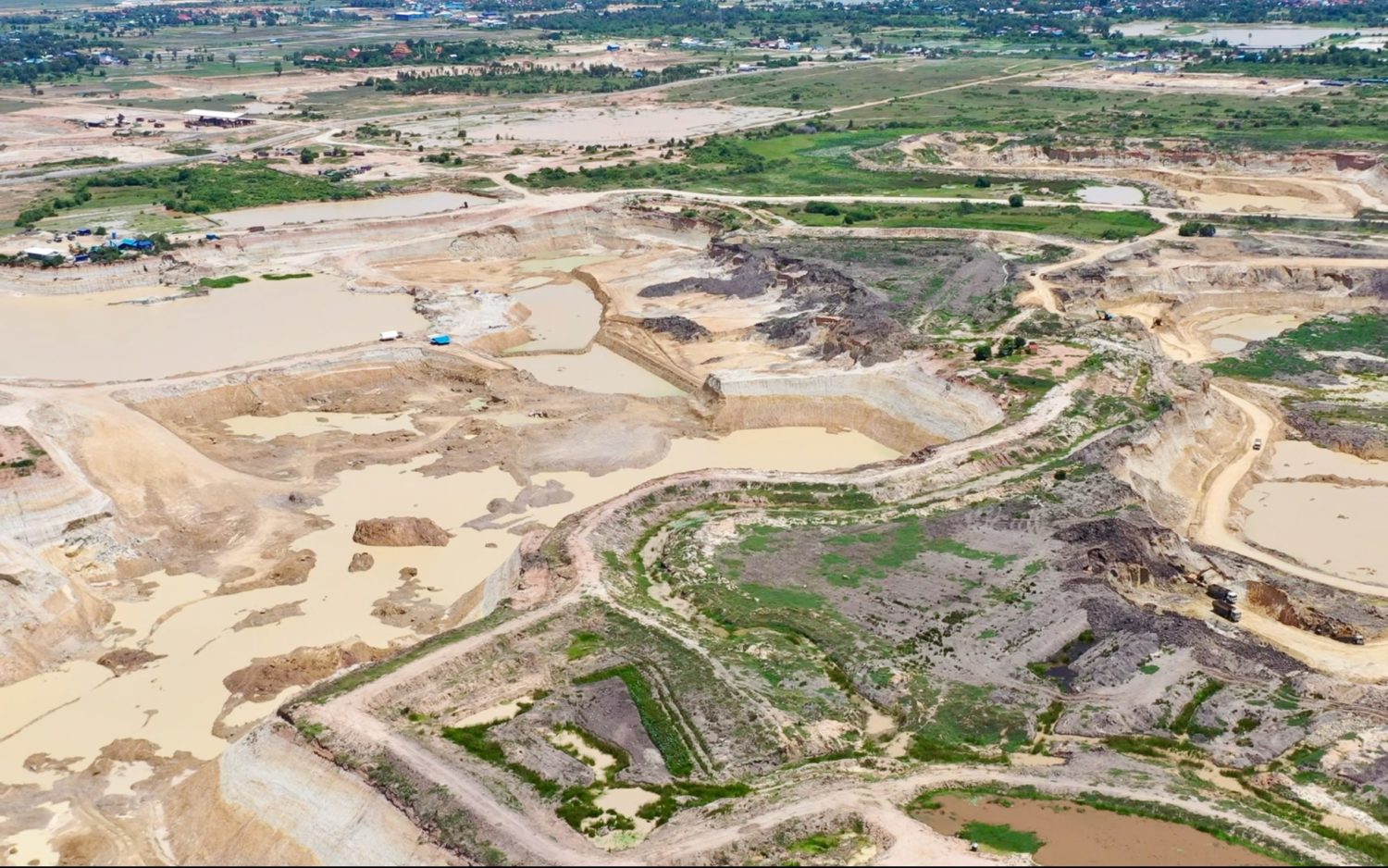Within the span of a couple years, Kandal’s Boeng Trea lake has turned from a water body vital to the community to a quarry for digging up the lake bed for construction dirt.
A commune official believed the earth was being used to construct key ring roads, and the area would become reservoirs for people’s use once completed. But a government sub-decree has privatized the area for one individual, and the provincial governor explained this would lead to development and help resolve conflicting claims at the site.
Boeng Trea, in Kandal Stung district’s Trea commune, shows a clear transformation in satellite imagery. In mid-2019, the blue lake of roughly 20-30 hectares, surrounded by green wetland, quickly turns a pale yellow color. By early 2021, the entire area is a mess of dirt patches and paths.
On the ground this week, the reality is stark: Trucks and heavy machinery collect earth in deepening spirals, creating vast dirt pits where the lake used to be.
Kert Sophal said she used to live by fishing the lake and growing lotus. The water was also used in rice fields.

But she and her husband now guard the land for an owner whose identity she didn’t know, sleeping at the gate to prevent cows from wandering in, Sophal said.
“People used to get water from the lake for dry-season rice. But the people can no longer farm dry-season rice,” she said. “How could we do that now?”
Residents have protested, but there has been no action from the authorities, she said.
A local schoolteacher, Phum Maraka, said he worried for children’s safety as the quarry’s pits grew deeper.
“They’ve dug too deep. Really deep. Cows that fall could die. People who slide down will die. And digging like this, there is no water for plants. There are a lot of issues,” Maraka said.
He was concerned that the digging would only expand after nearby land was sold. “I’m so worried. I saw the land at the back was already sold. But I don’t know who bought this land. If the company bought it, it would be a risk for the students. Eventually, they will get close [to the school],” Maraka said.
Heal Vuthy, 57, said residents were unhappy.

“Cows can’t drink the water anymore. I make dry rice, but now there’s no more water because they are digging,” Vuthy said. “It is difficult. I want the water to use. … What can I do?”
The last time he had joined a protest, he was paid $50 to stop, he said.
Trea commune chief Ton Srun Nary said the excavation began around two years ago on 46 hectares of state land. There was a protest, but it was resolved, Srun Nary said.
The earth was being used for a ring road project, and the area would eventually become a reservoir for people’s use, she said, though later added that she wasn’t sure about the future.
“I don’t know the plan yet since the restoration project hasn’t finished,” she said of the excavation. “I heard that its reservoir won’t be finished until the third city ring road is completed.”
Though some residents also believed the area would become a reservoir, a government decree signed earlier this year and released last week transferred 46 hectares of Boeng Trea to an individual named in the document as Srun Bunleaph. It is one of many lake areas being privatized across the country for development.
Phnom Penh’s large Boeng Tamok lake has been carved up for connected individuals and state institutions to fill and develop, while Tonle Bati, a popular tourist site near Boeng Trea, was also privatized for Bunleaph this year.
Kandal provincial governor Kong Sophorn, when asked about Boeng Trea on Thursday, said the private development would be positive.
“It is OK to develop for the benefits, and also to reduce disputes too,” Sophorn said, explaining that conflicting land claims would be resolved by having a clear owner.
But for Nu Soav, 47, the changes do not currently feel like progress. “This is not development. They’re taking the soil to sell. They dig until the lake changes into a wall. The lake is gone,” he said.












